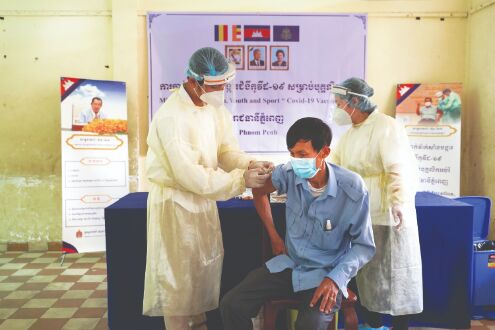After slow starts, some Asian vaccination rates now soaring

Phnom Penh: When Cambodia rolled out COVID-19 vaccines, lines stretched down entire streets and people left their shoes out to save their places as they sheltered from the sun. But three months into its campaign, just 11 per cent of the population had received at least one dose. In far wealthier Japan, it took two weeks longer to reach that level.
Now both countries boast vaccination rates that rank among the world's best. They are two of several nations in the Asia-Pacific region that got slow starts to their immunisation campaigns but have since zoomed past the United States and many nations in Europe.
The countries with high rates include both richer and poorer ones, some with larger populations and some with smaller. But all have experience with infectious diseases, like SARS, and strong vaccine-procurement programmes, many of which knew to spread their risk by ordering from multiple manufacturers.
Most started vaccinating relatively late due to complacency amid low infection rates, initial supply issues and other factors. But by the time they did, soaring death tolls in the US, Britain and India helped persuade even the sceptical to embrace the efforts. Cambodia was one of the earlier countries in the region to start its vaccination programme with a February 10 launch still two months after the US and Britain began theirs.
As elsewhere in the region, the rollout was slow, and by early May, as the delta variant started to spread rapidly, only 11 per cent of its 16 million people had gotten at least their first shot, according to Our World in Data. That's about half the rate reached in the US during the same timeframe and a third of the UK's.
Today Cambodia is 78 per cent fully vaccinated compared to 58 per cent in the US. It is now offering booster shots and looking at extending its programme to three and four-year-olds.
Early in the pandemic, many Asian countries imposed strict lockdown and travel rules that kept the virus largely at bay. As vaccines rolled out in force elsewhere, those low rates sometimes worked against them, giving some people the impression that getting the shot wasn't urgent. But when the virulent delta variant began ripping through the region, cases rose, encouraging people to sign up.
Some countries, like Malaysia, made extra efforts to ensure that even the hardest-to-reach groups were offered
the vaccine.



